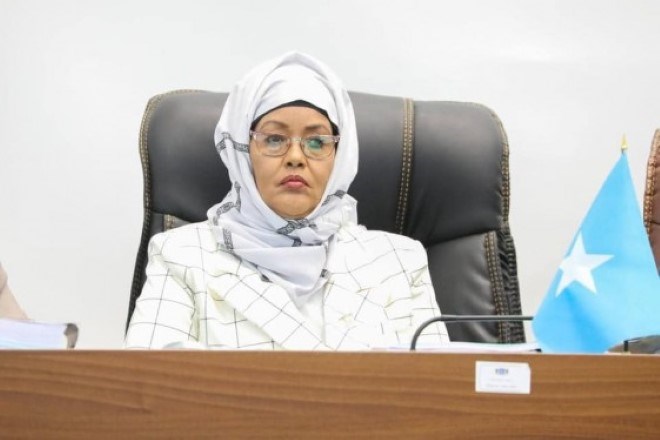The Penetration Bill, also known as the Sexual Intercourse Bill, was being promoted by MP Sadia Yasin Samatar, the first deputy speaker of the Lower House of the Somali parliament.
After being tabled in parliament in 2020, the measure provoked controversy among Somalis and was viewed as being incompatible with Islam and Somali culture.
Speaker Yassin emphasized that she was not a supporter of the bill and that the parliament rejected it when it was put up for discussion.
She made it clear that she is one of the representatives pushing for the measure to be changed and given the new name “Sharaf-dhowr” in order to conform to Islamic Sharia.
At a gathering commemorating Mogadishu’s 16 Days of Activism Against Gender-Based Violence, speaker Yassin made the remarks.
I would leave Mogadishu if the parliament does not pass the law, she declared during the occasion.
Before she was chosen to serve as deputy speaker of the parliament, the parliament rejected the Sexual Intercourse Bill, which many people thought she was referring to.
According to her, the bill safeguards the rights of both sexes, particularly women.
The country in East Africa has high incidences of female genital mutilation and rape as well as underage marriage (FGM). According to the UN, 98% of women have had FGM, and 45% of women get married before turning 18.
She claimed that as a result of her activism and support for the measure, she frequently got death threats and accusations of being an unbeliever.
The groundbreaking Sexual Offences bill, which makes crimes like rape, child marriage, and sex trafficking illegal, was adopted by Somalia’s cabinet in 2018.
When Somalia’s parliament updated the Sexual Offences Bill (SOB) with the Sexual Intercourse Bill in 2020, it received worldwide ire. The latter was criticized for not going far enough to safeguard the rights of women and girls. The UN pleaded with Somali legislators to reject the proposal.
At a new measure, the Sexual Intercourse bill, was presented to lawmakers in August 2020, it had been pending before the Lower House of parliament for more than two years.
High-ranking legislators in the previous legislature contended that the SOB measure violated Islamic law and that its ambiguous phrasing encouraged same-sex relationships.
In spite of pleas to table the Sexual Offenses Bill for approval, the Lower House of Parliament declined to discuss and pass the contentious legislation.

